Cooking sprays have become a staple in kitchens worldwide due to their convenience and effectiveness. PAM spray, in particular, has gained popularity as a non-stick solution. However, concerns over its ingredients and impact on the environment have prompted many to seek out substitutes.
In this guide, we’ll explore a range of healthy and eco-friendly alternatives to PAM spray.
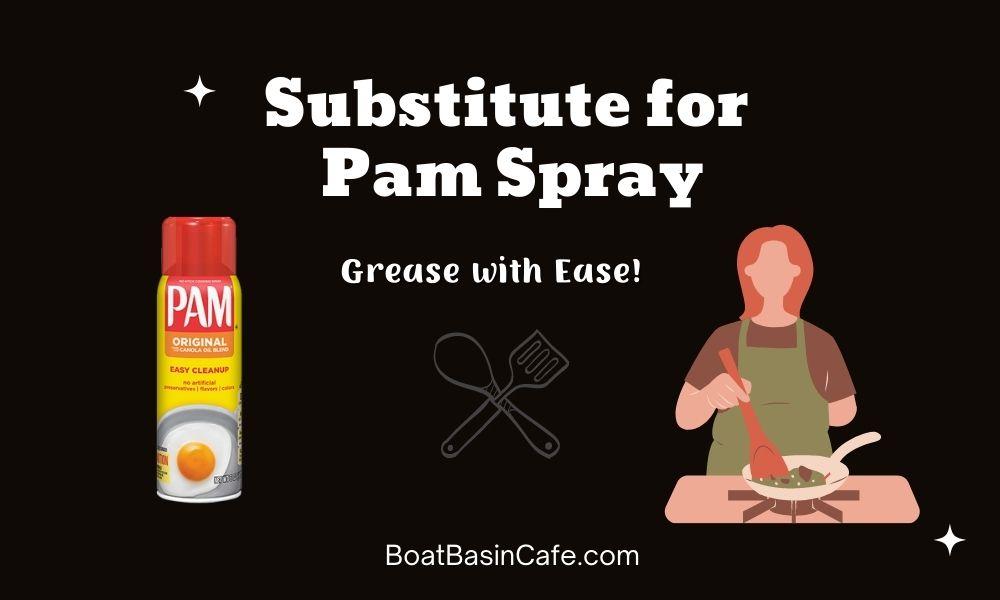
Substitute for Pam Spray
| No. | Substitute | Pros | Cons |
|---|---|---|---|
| 1. | Oil Misters | Control over oil type and quantity, reusable, cost-effective | Requires a separate spray bottle |
| 2. | Homemade Cooking Spray | Customizable, cost-effective, reduced waste | Requires a spray bottle, less convenient |
| 3. | Butter | Rich flavor, natural, contains beneficial nutrients | Lower smoke point, not dairy-free |
| 4. | Coconut Oil | Health benefits, good for baking | Solid at room temperature |
| 5. | Ghee (Clarified Butter) | High smoke point, rich flavor, lactose-free | Not dairy-free |
| 6. | Non-Stick Baking Paper | No additional oils or fats, easy cleanup | Single-use |
| 7. | Silicone Baking Mats | Reusable, even heat distribution | Higher initial cost |
| 8. | Cast Iron Skillets | Durable, natural non-stick surface | Requires proper seasoning and maintenance |
| 9. | Ceramic Non-Stick Cookware | PTFE- and PFOA-free, durable, easy to clean | Can be expensive |
| 10. | Lard and Other Animal Fats | Flavorful, natural source of fat-soluble vitamins | N/A |
Oil Misters

Oil misters are refillable, pump-action spray bottles designed to dispense a thin, even layer of oil onto your cookware, making them a perfect substitute for PAM spray.
Benefits of using oil misters
- Control over the type and quantity of oil used
- Reusable, reducing waste and environmental impact
- Cost-effective compared to disposable cooking sprays
How to use an oil mister
- Fill the mister with your choice of oil
- Pump the cap to build pressure
- Spray a thin layer onto your cookware
Best Oils for Misters
- Olive oil
- Avocado oil
- Grapeseed oil
Learn more about oils and their shelf life.
Homemade Non-Stick Cooking Spray
Creating your own cooking spray allows you to choose high-quality, healthy ingredients while reducing waste and saving money.
Ingredients needed
- 1 part oil (e.g., olive, avocado, or grapeseed oil)
- 1 part water
- A few drops of liquid lecithin (optional, for improved emulsification)
- Spray bottle
Step-by-step guide to making homemade non-stick cooking spray
- Combine oil, water, and liquid lecithin in the spray bottle
- Shake well to emulsify the mixture
- Spray a thin layer onto your cookware
Butter
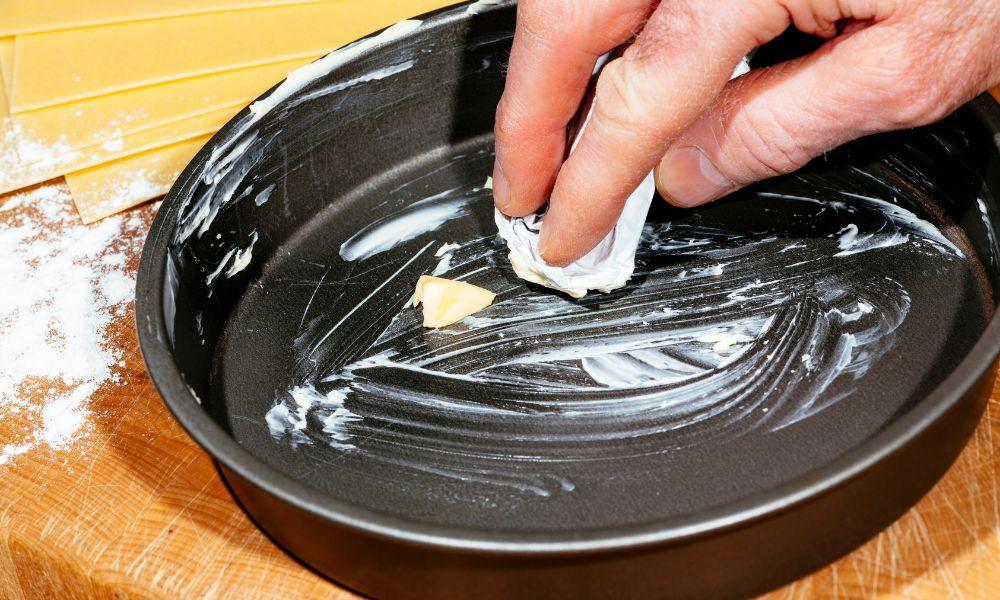
Advantages of using butter as a substitute
- Rich flavor
- Natural, whole-food ingredient
- Contains beneficial nutrients like vitamins A, D, E, and K
How to use butter as a non-stick agent
- Melt a small amount of butter in your cookware over low heat
- Spread the melted butter evenly to coat the surface
Learn how many tablespoons are in a stick of butter.
Tips for using butter in high-temperature cooking
- Use clarified butter or ghee, which have a higher smoke point
- Combine with a high smoke point oil, like avocado or grapeseed oil
Coconut Oil

Health benefits of coconut oil
- Contains medium-chain triglycerides (MCTs), which may have metabolic benefits
- Antimicrobial properties
When to use coconut oil in cooking
- Baking
- Sautéing
- Frying (use refined coconut oil for high-temperature cooking)
How to use coconut oil as a PAM spray substitute
- Scoop a small amount of coconut oil onto your cookware
- Spread the oil evenly to coat the surface using a brush or paper towel
Ghee (Clarified Butter)
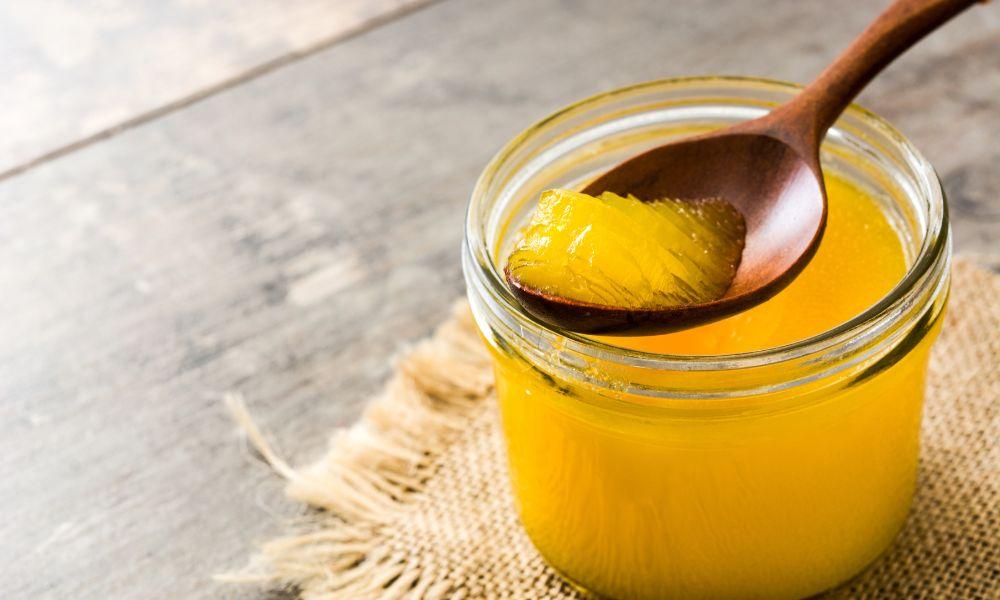
What is ghee?
Ghee is a form of clarified butter, made by simmering butter and removing the milk solids.
Benefits of using ghee in cooking
- High smoke point (485°F/252°C)
- Rich, nutty flavor
- Lactose-free
How to use ghee as a non-stick cooking agent
- Melt a small amount of ghee in your cookware over low heat
- Spread the melted ghee evenly to coat the surface
Non-Stick Baking Paper

Advantages of using non-stick baking paper
- No need for additional oils or fats
- Easy cleanup
- Prevents sticking and burning
Common uses for non-stick baking paper
- Baking cookies, pastries, and bread
- Lining cake pans
- Roasting vegetables
Tips for using non-stick baking paper in cooking
- Cut the paper to fit your pan or tray
- Use a light coating of oil or butter to secure the paper in place if needed
Silicone Baking Mats
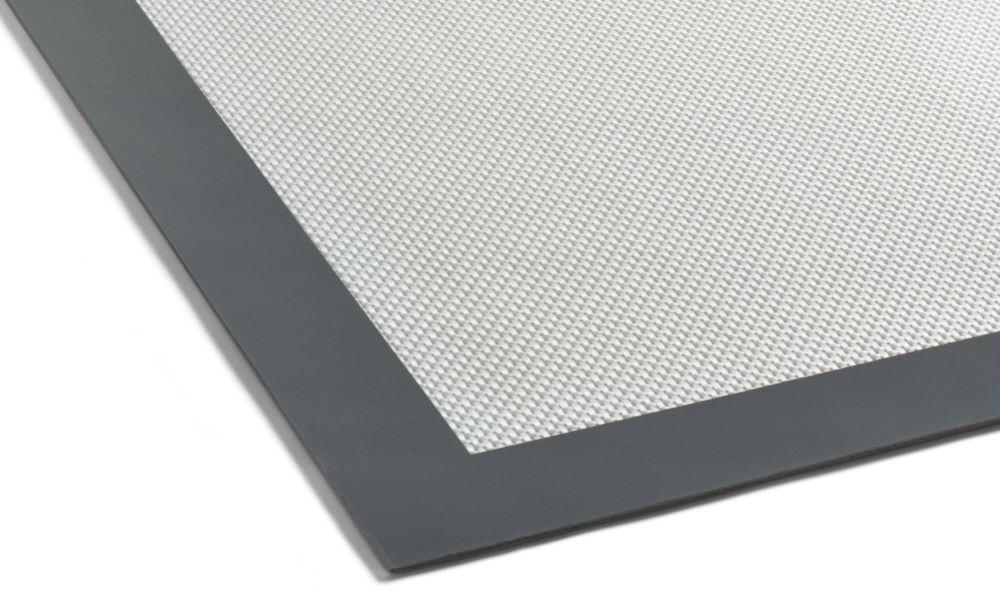
Benefits of silicone baking mats
- Reusable, reducing waste and cost
- Non-stick, requiring no additional oils or fats
- Even heat distribution for consistent results
How to use silicone baking mats
- Place the mat on your baking sheet or pan
- Arrange food directly on the mat
- Bake as usual, following your recipe’s instructions
Caring for your silicone baking mats
- Wash with warm soapy water and a soft sponge
- Allow to air dry before storing
Cooking with Cast Iron Skillets
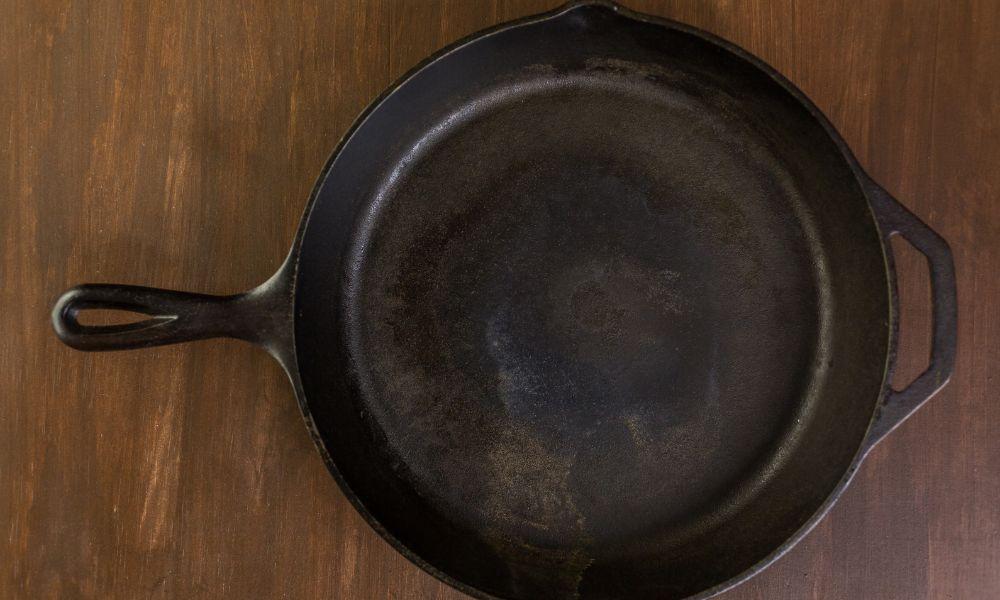
Why cast iron skillets are non-stick
When properly seasoned and maintained, cast iron skillets develop a natural non-stick surface.
Seasoning your cast iron skillet
- Preheat your oven to 400°F (205°C)
- Coat the skillet with a thin layer of oil (e.g., flaxseed, vegetable, or grapeseed oil)
- Place the skillet upside down on the oven rack, with a sheet of aluminum foil or a baking sheet on the rack below to catch any drips
- Bake for 1 hour, then let the skillet cool in the oven
Learn how to clean your cast iron grill and how to protect your glass-top stove from cast iron cookware.
Tips for cooking with cast iron skillets
- Preheat the skillet before adding food
- Use a small amount of oil or fat for added non-stick properties
- Avoid cooking acidic foods in cast iron, as they can strip the seasoning
Ceramic Non-Stick Cookware
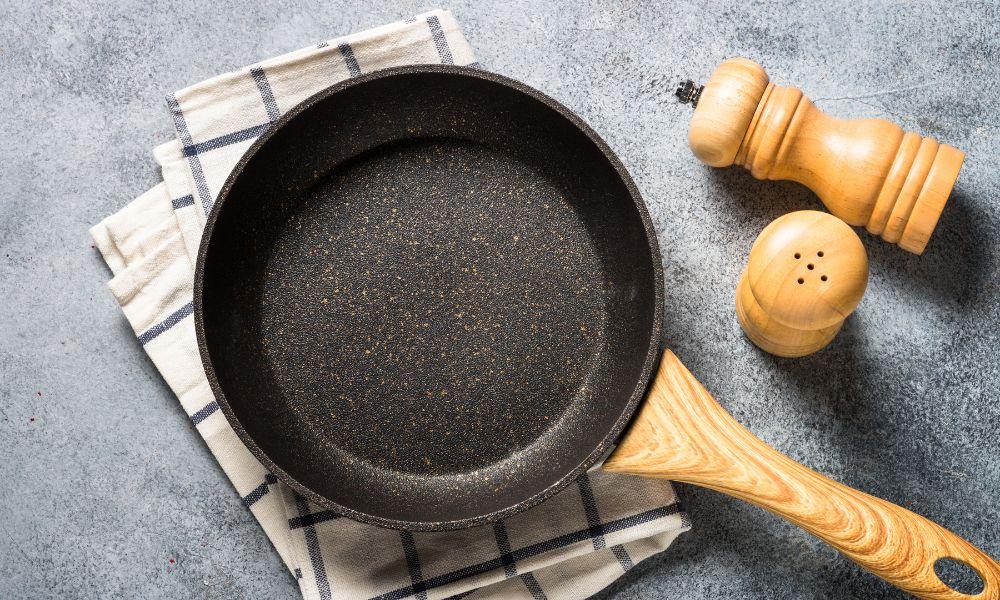
Advantages of ceramic non-stick cookware
- PTFE- and PFOA-free
- Durable and scratch-resistant
- Easy to clean
How to use and care for ceramic non-stick cookware
- Heat the cookware gradually, avoiding high heat
- Use silicone, nylon, or wooden utensils to prevent scratches
- Wash with warm soapy water and a soft sponge
Top brands of ceramic non-stick cookware
- GreenLife
- Caraway
- GreenPan
Check out our non-stick cookware articles for more information.
Lard and Other Animal Fats
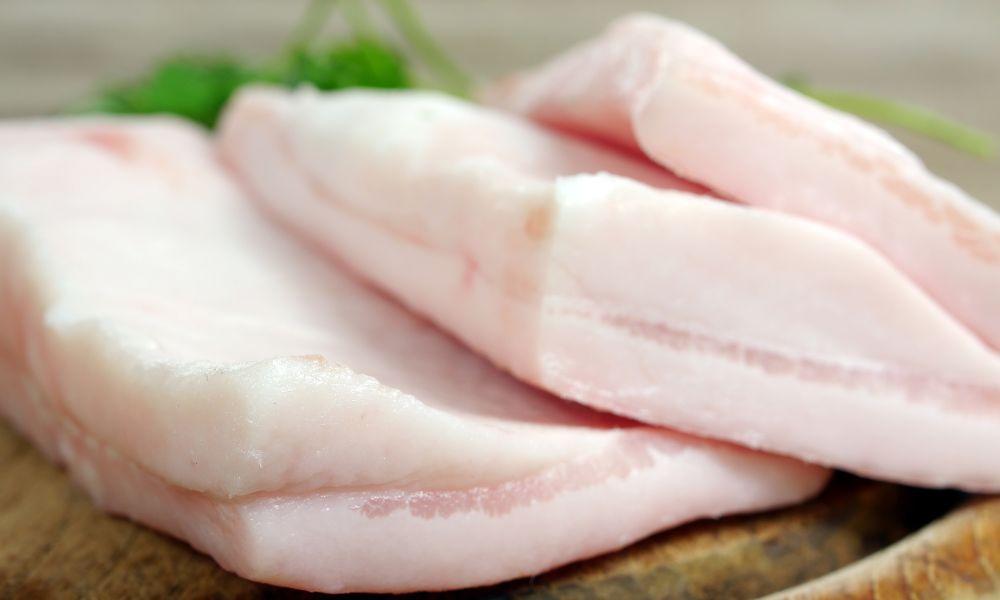
Health benefits of cooking with animal fats
- Natural source of fat-soluble vitamins (A, D, E, and K)
- Can be more flavorful than plant-based oils
How to use lard and other animal fats as PAM spray substitutes
- Melt a small amount of fat in your cookware over low heat
- Spread the melted fat evenly to coat the surface
Best types of animal fats for non-stick cooking
- Lard
- Duck fat
- Tallow (beef or lamb fat)
Vegetable Shortening

What is vegetable shortening?
Vegetable shortening is a solid fat made from hydrogenated vegetable oils, often used in baking and frying.
Benefits of using vegetable shortening in cooking
- High smoke point
- Long shelf life
- Imparts a light, flaky texture in baked goods
How to use vegetable shortening as a non-stick agent
- Scoop a small amount of shortening onto your cookware
- Spread the shortening evenly to coat the surface using a brush or paper towel
Cooking with Stainless Steel Cookware
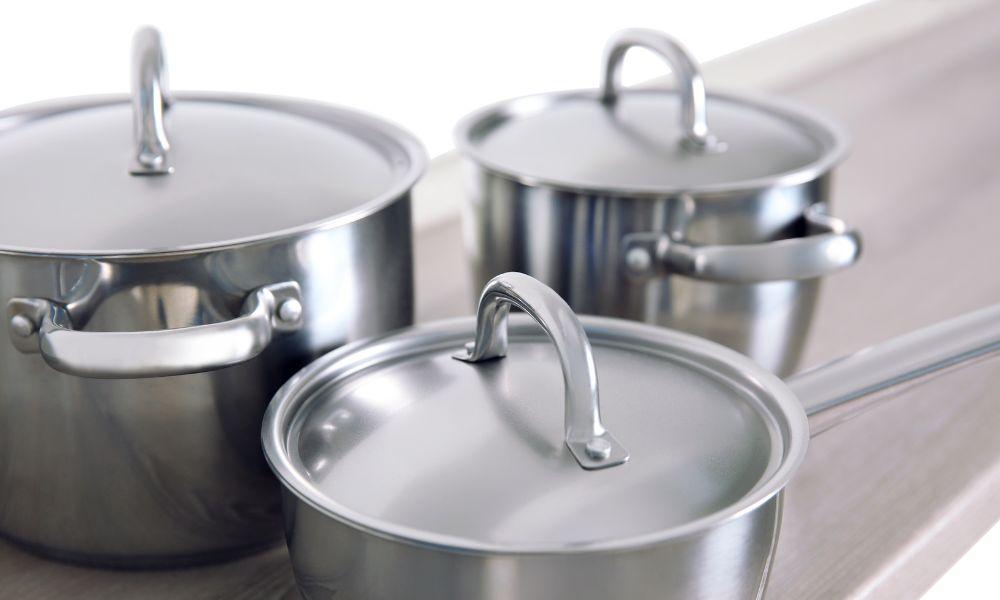
Why stainless steel can be non-stick
When heated correctly and combined with the right amount of oil, stainless steel cookware can provide a non-stick surface.
Tips for cooking with stainless steel cookware
- Preheat the cookware before adding oil
- Use a small amount of oil with a high smoke point, such as avocado or grapeseed oil
- Allow food to cook undisturbed until it naturally releases from the pan
Caring for your stainless steel cookware
- Wash with warm soapy water and a soft sponge
- Dry thoroughly to prevent water spots
Conclusion
Finding a suitable substitute for PAM spray is essential for those seeking healthier and more eco-friendly alternatives. Factors to consider when choosing an alternative include cooking temperature, taste preferences, and environmental impact. We encourage you to experiment and discover the best option for your unique cooking needs.
FAQs
Is using a substitute for PAM spray healthier?
In many cases, yes. Substitutes like oil misters, homemade cooking spray, and natural fats such as butter or coconut oil allow you to control the type and quantity of oil used. This can lead to a healthier cooking experience by avoiding unwanted additives or preservatives found in commercial cooking sprays.
Are there any eco-friendly alternatives to PAM spray?
Absolutely! Oil misters, silicone baking mats, and reusable non-stick baking paper are eco-friendly options that help reduce waste and minimize the environmental impact associated with disposable cooking sprays.
Can I use butter or coconut oil for high-temperature cooking?
Butter and coconut oil can be used for high-temperature cooking if you choose the right type. Clarified butter (ghee) and refined coconut oil have higher smoke points, making them suitable for high-heat cooking. Combining butter with a high smoke point oil, like avocado or grapeseed oil, can also work well.
How do I know which PAM spray substitute is right for me?
The best substitute for PAM spray depends on your specific needs, such as cooking temperature, taste preferences, and environmental concerns. Experiment with different options and choose the one that works best for you.
Can I use cast iron or stainless steel cookware as a non-stick alternative?
Yes, both cast iron and stainless steel cookware can serve as non-stick alternatives when used and maintained correctly. Properly seasoned and cared for cast iron skillets develop a natural non-stick surface. Stainless steel cookware, when heated correctly and combined with the right amount of oil, can also provide a non-stick cooking experience.